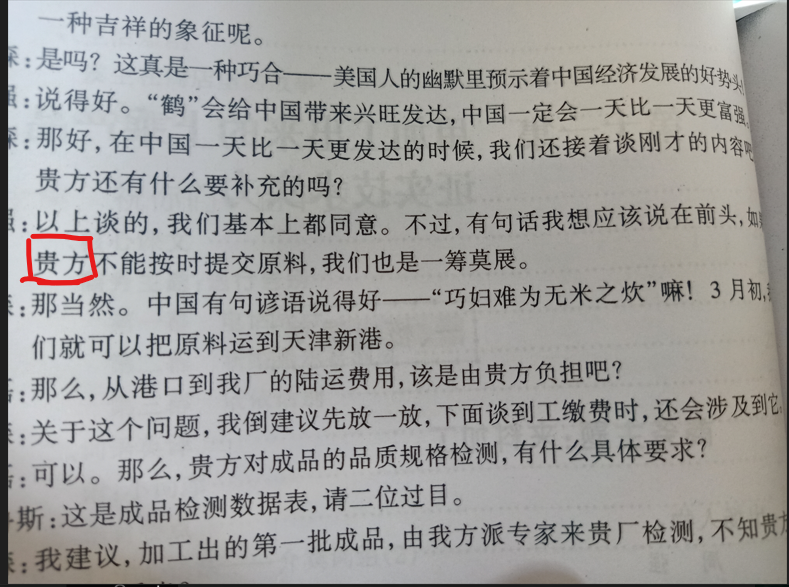That is a traditional way of been extremely polite and showing extremely respect to the counterparty, such as "贵方" (means yours, or your side), "贵府" (your home or your office), "贵公子" (your son) and "贵庚" (your age?) or "贵姓" (your surname?) etc.
Although it could be understood as next level of respect over "您", but there's a little bit different here: "贵xxx" could also been used to indicate 3rd party, with a bit of objective view but respect feel. Such as:
"不知道她贵庚几何?" - How old is she (in respect way)?
"敢问尊夫人贵姓?" - May I ask your wife's (in respect way) surname?
Also, this is normally used in written Chinese now days, especially for "贵方" which is a bit odd in oral communication. So, it's not very common in the real life conversation, but still, in some business writing, this may still been used.
